The key election issues that people who live, work and spend time in Mumbles are talking about
Walking around a seaside village saturated in June sunlight it's tempting to think the taxing issues facing Wales and the UK are far away. People in Mumbles greet each other, tourists clasp ice creams, hanging baskets are drenched in colour, and the smell of fresh coffee percolates onto the streets. The white heat of the general election seems distant.
But dig a little deeper and there's barely concealed frustration among some about decisions taken in Wales and concern from business owners about roadworks, parking, and the length of time it's due to take for the new Mumbles seawall to be completed. As novelist Leo Tolstoy didn't quite write, all happy constituencies are alike; each unhappy constituency is unhappy in its own way.
Mumbles is part of the Gower constituency, which has moved to the right - geographically-speaking - following a nationwide review of Parliamentary boundaries. In comes Swansea suburbs such as Cockett, Dunvant, and Killay. The diverse constituency includes Mawr - a sparsely-populated upland area in the north of Swansea - Pontarddulais, a ward of just under 5,000 people bordering Carmarthenshire, and affluent south Gower villages like Southgate. Mumbles is a sought-after area with many independent shops and wonderful beaches over the hill at Langland and Caswell. People who shared their views about the general election looming on July 4 wanted more NHS appointments and better patient outcomes. Growing the economy was also high on the list; reducing net migration came lower.
READ MORE: The election issues that matter the most to the people of Swansea
READ MORE: We asked people in this town centre two key questions about the general election
Clive Roberts, 58, said he'd always had good experiences with the NHS - a devolved area in Wales - but that he'd had gone private for a knee operation after being advised of a five-year waiting list. Referring to finances and the cost of living on the day inflation (in May) fell to 2% Mr Roberts said: "I think people forget what's happened in the last few years - Brexit, Covid, Ukraine - there have been a lot of external pressures."
Kate Franks, 50, said affordable homes were badly needed. "Young people have had to move away from a lot of seaside towns," she said. Business owner Naomi Gibbs, 52, said there was a perception that Mumbles looked "a mess" due to the seawall rebuild and roadworks in Mumbles Road. "I think people really need to listen the businesses," she said.
Ten people answered these two questions from the Local Democracy Reporting Service:
1) Rank the following issues in order of importance: building more homes, better public transport, reducing net migration, more NHS appointments and better outcomes for patients, reducing cost-of-living pressures, action to tackle and adapt to climate change, and growing the economy.
2) What motivates you the most and least when it comes to actually voting: voting for a particular party, voting for a particular candidate, what's best for the constituency you live in, what's best for the country, and what's best for your own economic circumstances?
Clive Roberts, 58, retired, from Mumbles

Ranking of issues in order of importance:
1. Growing the economy
2. Better public transport
3. More NHS appointments and better outcomes for patients
4. Action to tackle and adapt to climate change
5. Cost of living pressures
6. Building more (affordable) homes
7. Reducing net migration
Ranking of motivations that drive you to vote the way you do:
1. A particular party
2. What's best for the country
3. A particular candidate
4. What's best for my own economic circumstances
5. What's best for the constituency
Kate Franks, 50, of Mumbles
Ranking of issues in order of importance:
1. Reducing cost of living pressures
2. More NHS appointments and better outcomes for patients
3. Action to tackle and adapt to climate change
4. Building more (affordable) homes
5. Better public transport
6. Growing the economy
7. Reducing net migration
Ranking of motivations that drive you to vote the way you do:
1. What's best for the constituency
2. A particular party
3. What's best for my own economic circumstances
4. What's best for the country
5. A particular candidate
Tracey Bateman, 53, of Mumbles, owner of Oyster Galley
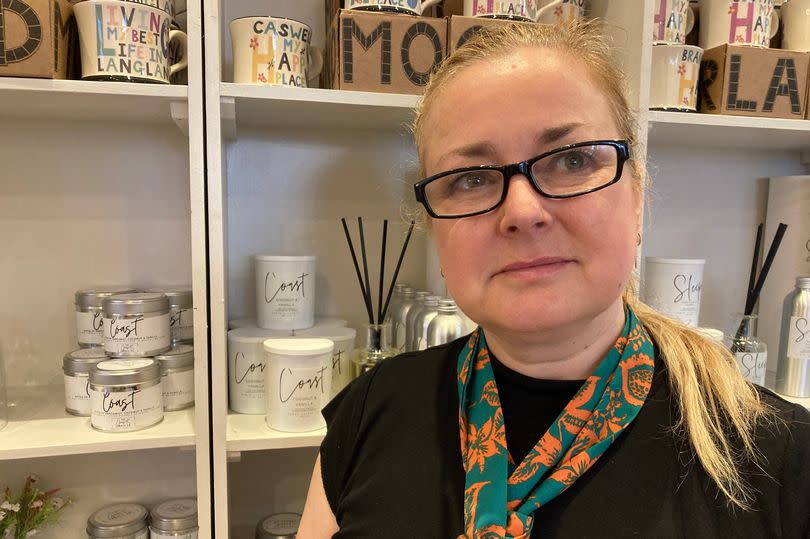
Ranking of issues in order of importance:
1. More NHS appointments and better outcomes for patients
2. Growing the economy
3. Action to tackle and adapt to climate change
4. Reducing cost of living pressures
5. Building more homes
6. Reducing net migration
7. Better public transport
Ranking of motivations that drive you to vote the way you do:
1. What's best for my economic circumstances
2. What's best for the constituency
3. What's best for the country
4. Voting for a particular party
5. Voting for a particular candidate
David Clarke, 70, a poet from Mumbles

Ranking of issues in order of importance:
1. More NHS appointments and better outcomes for patients
2. Reducing net migration
3. Action to tackle and adapt to climate change
4. Growing the economy
5. Better public transport
6. Reducing cost of living pressures
7. Building more homes
Ranking of motivations that drive you to vote the way you do:
1. What's best for the constituency
2. What's best for my own economic circumstances
3. What's best for the country
4. A particular candidate
5. A particular party
Catherine Robinson, 82, of Durham, visiting her son in Mumbles
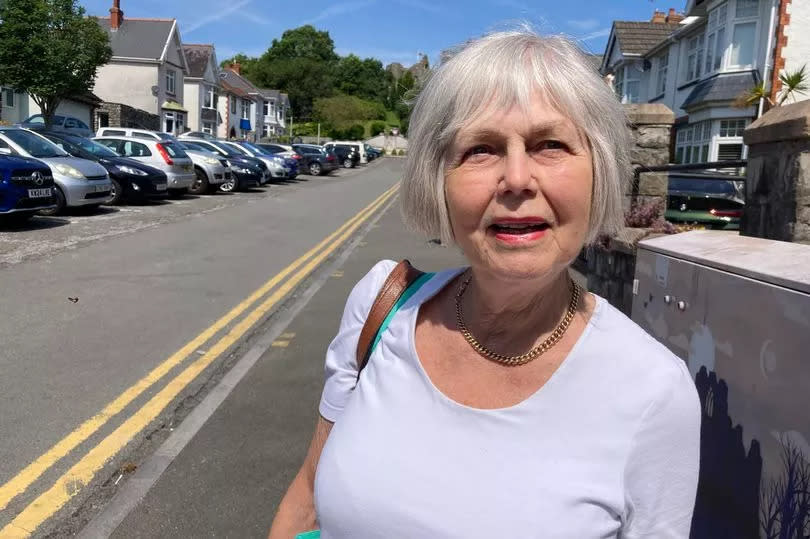
Ranking of issues in order of importance:
1. More NHS appointments and better outcomes for patients
2. Action to tackle and adapt to climate change
3. Growing the economy
4. Better public transport
5. Building more homes
6. Reducing net migration
7. Reducing cost of living pressures
Ranking of motivations that drive you to vote the way you do:
1. What's best for the country
2. A particular party
3. What's best for my own economic circumstances
4. What's best for the constituency
5. A particular candidate
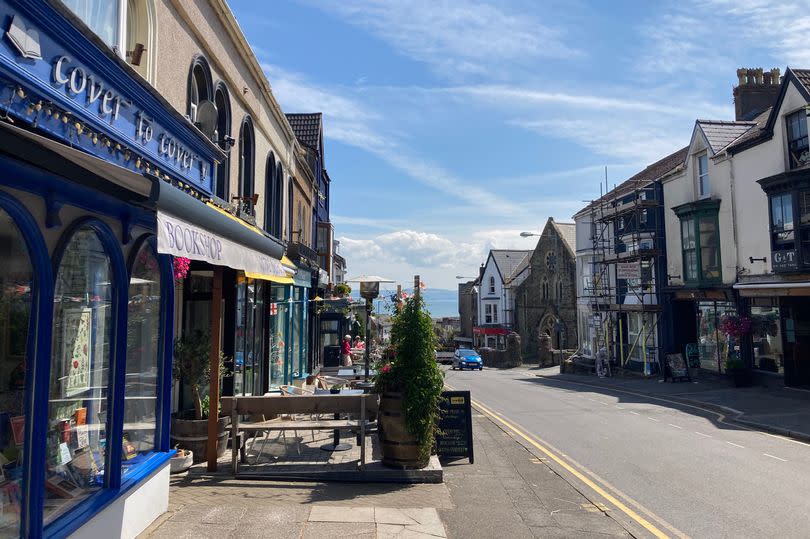
Naomi Gibbs, 52, of Loughor, owner of Adelante gifts, fashion and vintage shop in Mumbles
Ranking of issues in order of importance:
1. Better public transport
2. Growing the economy
3. Reducing cost of living pressures
4. Reducing net migration
5. More NHS appointments and better outcomes for patients
6. Action to tackle and adapt to climate change
7. Building more homes
Ranking of motivations that drive you to vote the way you do:
1. What's best for my own economic circumstances
2. What's best for the constituency
3. What's best for the country
4. A particular party
5. A particular candidate
Mike Harcourt, 67, retired school caretaker, of Craig Cefn Parc, near Clydach
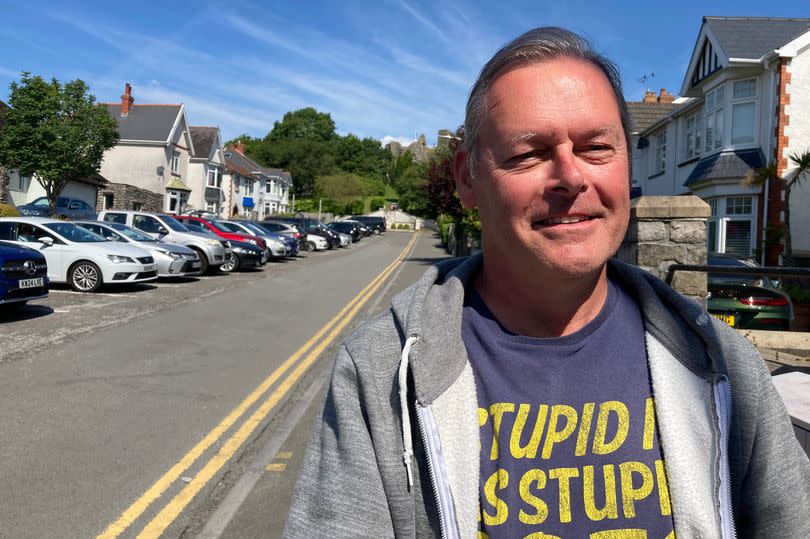
Ranking of issues in order of importance:
1. More NHS appointments and better outcomes for patients
2. Reducing cost of living pressures
3. Building more homes
4. Better public transport
5. Growing the economy
6. Reducing net migration
7. Action to tackle and adapt to climate change
Ranking of motivations that drive you to vote the way you do:
1. What's best for the country
2. What's best for the constituency
3. What's best for my own economic circumstances
4. A particular party
5. A particular candidate

Rachel Fender, 51, of Newton, manager of Cheers Wine Merchants, Mumbles
Ranking of issues in order of importance:
1. More NHS appointments and better outcomes for patients
2. Better public transport
3. Reducing cost of living pressures
4. Growing the economy
5. Action to tackle and adapt to climate change
6. Building more homes
7. Reducing net migration
Ranking of motivations that drive you to vote the way you do:
1. What's best for the constituency
2. What's best for my own economic circumstances
3. What's best for the country
4. A particular candidate
5. A particular party
Tim Batcup, 55, of Sketty, owner of Cover to Cover bookshop, Mumbles
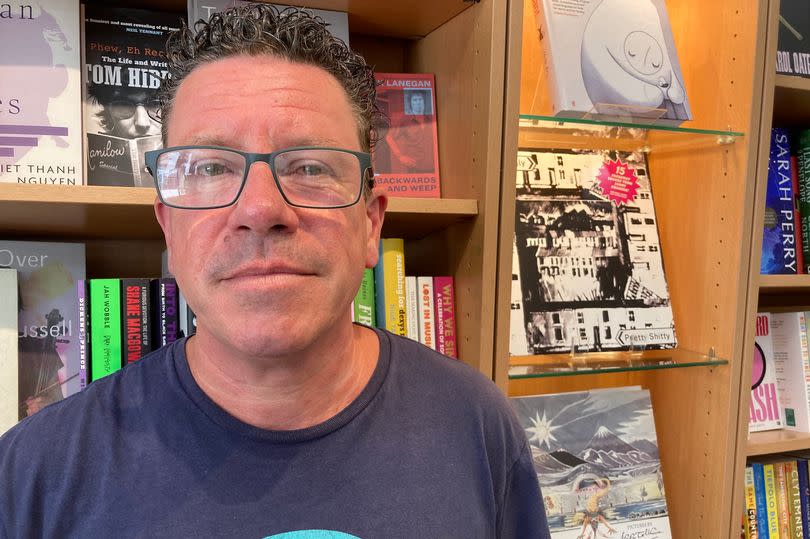
Ranking of issues in order of importance:
1. Reducing cost of living pressures
2. More NHS appointments and better outcomes for patients
3. Action to tackle and adapt to climate change
4. Growing the economy
5. Better public transport
6. Building more homes
7. Reducing net migration
Ranking of motivations that drive you to vote the way you do:
1. What's best for the country
2. What's best for the constituency
3. My own economic circumstances
4. A particular candidate
5. A particular party
Jayne Lambe, 55, of Newton

Ranking of issues in order of importance:
1. More NHS appointments and better outcomes for patients
2. Reducing cost of living pressures
3. Better public transport
4. Reducing net migration
5. Growing the economy
6. Action to tackle and adapt to climate change
7. Building more homes
Ranking of motivations that drive you to vote the way you do:
1. My own economic circumstances
2. A particular party
3. A particular candidate
4. What's best for the constituency
5. What's best for the country
The candidates running in Gower are Tonia Antoniazzi (Labour), Franck Ngoie Banza (Lib Dem), Wayne Erasmus (Independent), Chris Evans (Green Party), Marc Rhys Jenkins (Conservatives), Kieran Thomas Pritchard (Plaid Cymru), and Catrin Thomas (Reform UK).

 Yahoo News
Yahoo News 
